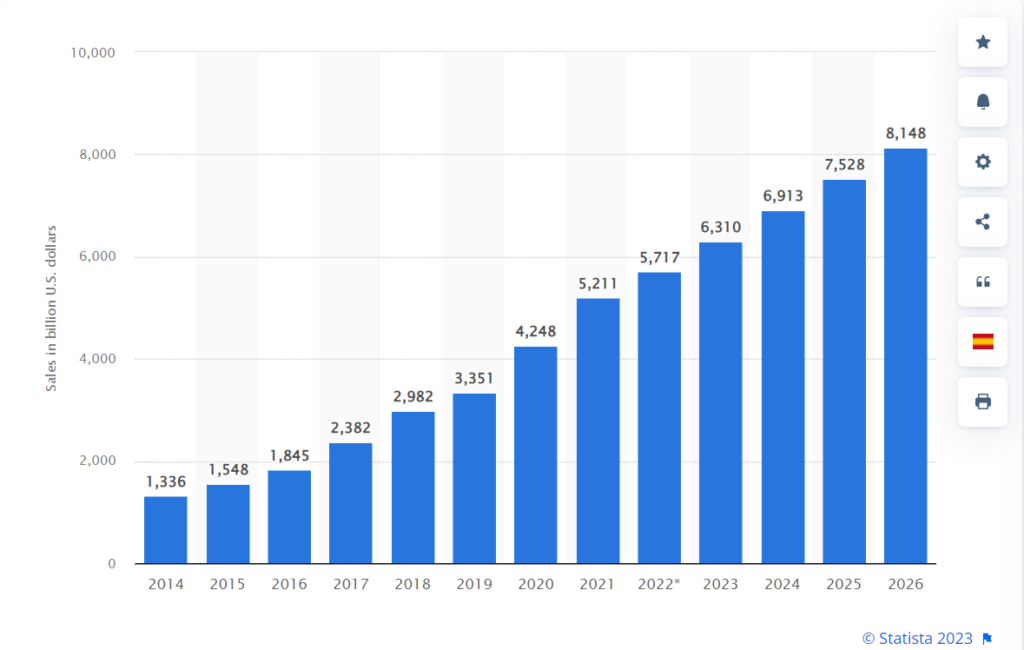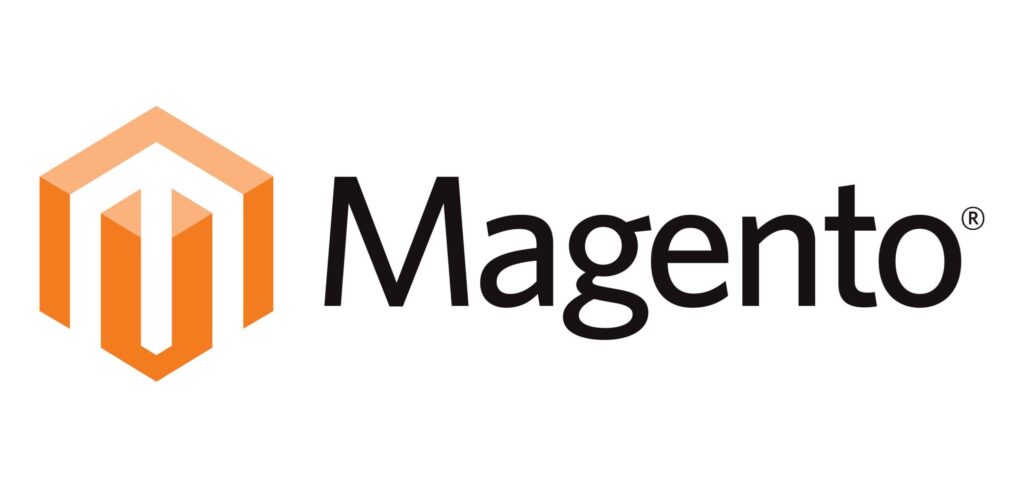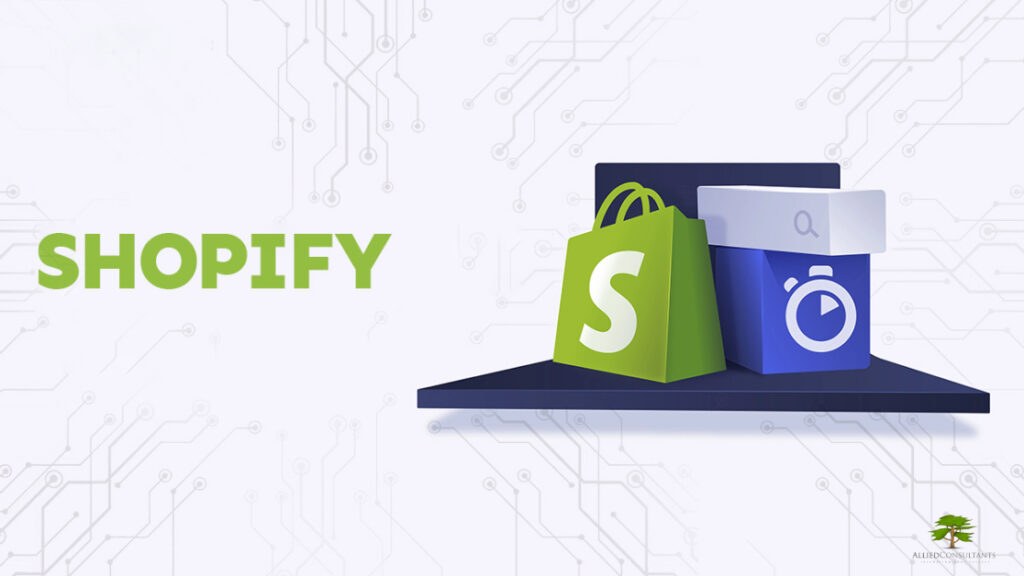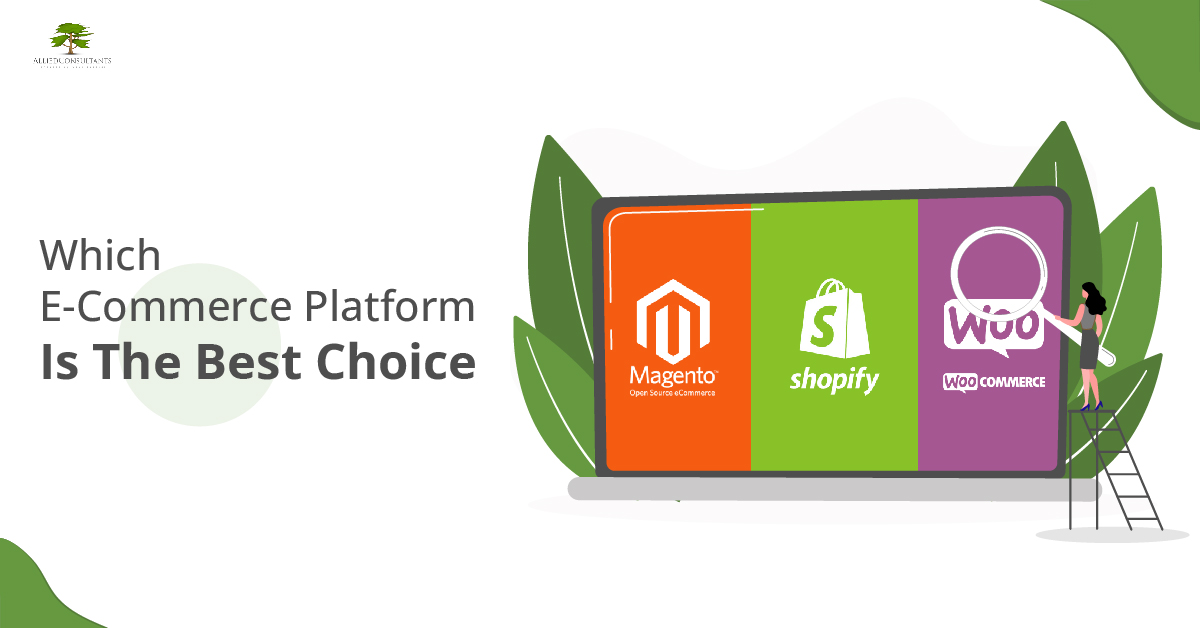Shopify, Magento, WooCommerce: Which Is The Best Choice For Your Online Store?
When it comes to starting an online store, there are many things to take into consideration. One of the puzzle’s most essential parts is which platform to power your e-commerce site. Global e-commerce sales reached £3.9 trillion in 2021 and are projected to reach £5.9 trillion by 2025. The e-commerce industry presents numerous opportunities, making it enticing for entrepreneurs to get involved.

Shopify, Magento, or WooCommerce: What e-commerce platform is best for my business? This is one of the most frequently asked questions on Google. Entrepreneurs have a variety of e-commerce platforms to choose from when establishing an online business, selling products, and fulfilling orders. Magento (Adobe Commerce) and Shopify are popular choices among these platforms.
Choosing the right platform is crucial for your e-commerce journey’s success. To help you make an informed decision that aligns with your business goals, we’ve explained the distinctions between Shopify, Magento, and WooCommerce in this comprehensive blog post. This information will enable you to make a well-informed choice without delay. Let’s jump right into our discussion!
1. Shopify
Shopify is becoming a top choice for entrepreneurs in the e-commerce world. Its admin panel boasts a beautiful user interface that’s easy on the eyes. While it does have some limitations, there are a few tasks it can’t handle. However, one significant drawback is its limited flexibility in customizing the checkout page. You do have some control, but it’s somewhat restricted. If you’re aiming for a highly customized checkout page, Shopify might not be your best choice. None of the hosted solutions offer a customizable checkout process, so consider self-hosted options.
Also Read This: Software Development Companies Vs. Freelancers: Which Is Best?
Where Shopify truly shines is in its impressive selection of add-on apps. Like your smartphone, Shopify has many apps that can be downloaded and installed on your store, either enhancing the default features or introducing new ones. Their entire app system surpasses the competition, boasting the most extensive selection of available apps. The standout feature of Shopify is its user-friendly interface, setting it apart from other platforms. Without a doubt, Shopify offers a comprehensive e-commerce solution with customizable options to align with your branding requirements. Its versatility in allowing you to sell digital and physical products is intriguing.
Shopify is dedicated to making online store creation accessible to beginners without coding expertise. If you ever need to make modifications, Shopify provides access to HTML, CSS, and Liquid, empowering you to tailor your store to your liking. This accessibility is a crucial reason why many online stores today choose Shopify as their platform of choice.
2. Magento
Magento is an e-commerce platform with a long history in the industry. While many large e-commerce websites use it, it’s only sometimes recommended by experts for most companies. There are several reasons for this, but the primary one is the difficulty of customizing it. The platform can feel like a complex dinosaur that’s hard to manage. Despite its abundance of features, the user interface is far from user-friendly. It’s a classic case of a product designed by engineers and developers who may not fully grasp what makes an excellent user interface.

Another significant challenge for many stores using Magento is its slow performance. There are various solutions to address this issue, but the fact that you have to invest time fixing it is a significant drawback. Magento tends to be sluggish out of the box, and you need to dedicate hours or even days to tweaking caching extensions and settings to be satisfied with its performance. One of the standout features of this platform is its capability to create multiple online stores. Its ability to manage all these stores through a single admin panel is even more intriguing.
3. WooCommerce
Comparing WooCommerce to Magento presents challenges due to WooCommerce’s reliance on WordPress—it’s essentially a WordPress plugin, and you can’t use WooCommerce independently. What makes WooCommerce stand out is its exceptional customizability. It aligns seamlessly with WordPress, allowing you to achieve virtually anything you can with WordPress itself. For WordPress developers, the ability to make enhancements or functional changes using actions, hooks, and filters is both impressive and efficient.
Just like with anything related to WordPress, the resources available are endless. You can tap into a vast library of themes and plugins to precisely tailor your website to your needs. And even in those rare cases where you require something entirely custom, many skilled developers are ready to assist.
One of the advantages of WooCommerce being a WordPress plugin is that you also gain access to all the WordPress features. This includes built-in blogging functionality that’s neatly organized. In contrast, with Magento, you’d need to install a separate blogging extension just to get started with blogging.
| Feature | Shopify | Magento | WooCommerce |
| User-Friendly | ✓ | X | ✓ |
| Customizability | ✓ | ✓ | ✓ |
| Hosting & Maintenance | ✓ | X | ✓ |
| Payment Integration | ✓ | ✓ | ✓ |
| App/Plugin Availability | ✓ | ✓ | ✓ |
| Scalability | ✓ | ✓ | ✓ |
| Pricing | ✓ | X | ✓ |
| Support & Community | ✓ | ✓ | ✓ |
| Blogging Integration | X | X | ✓ |
| Learning Curve | Low | High | Low |
The Winner
So, who are the ultimate winners here? It is between Shopify and WooCommerce. If you are a big company with many products, clients, and traffic, then Shopify is a safer choice because you will have better and more dedicated support. WooCommerce is perfect for average and smaller stores that just need a store to sell a few things and sell them right! But we will award the victory to Shopify because it is simpler and faster than other platforms and provides out-of-the-box SEO options.

So, ready to elevate your online store?
Explore your e-commerce potential with Allied Consultants! We specialize in web development services and boast expertise in all three leading platforms: Shopify, Magento, and WooCommerce. Whether you’re a large enterprise seeking seamless scalability or a smaller business aiming for a user-friendly setup, we’ve got you covered. Contact us today and embark on a journey to e-commerce excellence!






![[Infographic] What are the 4 Basic Layers of an IoT Service Oriented Architecture?](https://alliedc.com/wp-content/uploads/2015/03/IoT-4-Layers-of-SOA-2-150x150.png)
